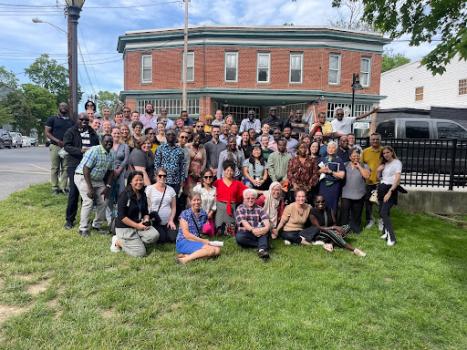Harnessing the Power and Passion of Local Expertise to Advance Water Security and Sanitation Progress
Around the world and often behind the scenes, foreign service nationals (FSNs) help drive USAID’s efforts to ensure communities everywhere have access to reliable sanitation and safe water. Without their leadership, technical expertise, institutional relationships, and nuanced knowledge of local traditions and networks—not to mention their credibility within the communities USAID serves—the Agency’s water and sanitation programming would not be nearly as impactful as it is today. USAID’s influence at a global scale is made possible in no small part thanks to the power of FSNs acting locally.
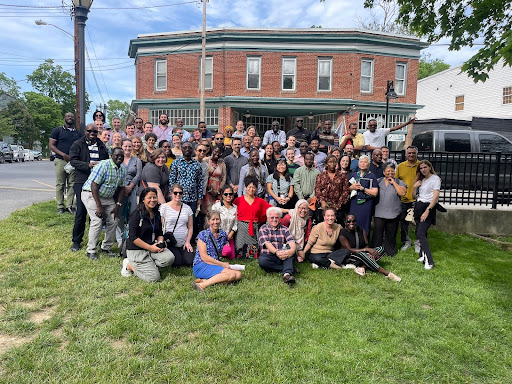
Photo Credit: USAID, May 2024.
Around the world and often behind the scenes, foreign service nationals (FSNs) help drive USAID’s efforts to ensure communities everywhere have access to reliable sanitation and safe water. Without their leadership, technical expertise, institutional relationships, and nuanced knowledge of local traditions and networks—not to mention their credibility within the communities USAID serves—the Agency’s water and sanitation programming would not be nearly as impactful as it is today. USAID’s influence at a global scale is made possible in no small part thanks to the power of FSNs acting locally.
At USAID, FSN empowerment is a core part of our mission. FSNs help ensure that local leadership and ownership of water and sanitation activities are at the forefront of project design and implementation. With their in-depth understanding of the realities shaping the lives of local communities, FSNs serve as bridges between the Missions, implementing partners, and the communities we serve. In doing so, they are helping sustain water and sanitation gains, promote inclusive development, and accelerate our collective pursuit of a healthier, more water-secure future.
Let us take you to El Salvador, Ethiopia, Indonesia, and Mozambique to hear from our colleagues in their own words. Discover how they found their way to working on water and sanitation issues, find out what motivates them every day, and learn how their views on the future of water and sanitation have the potential to transform their countries.
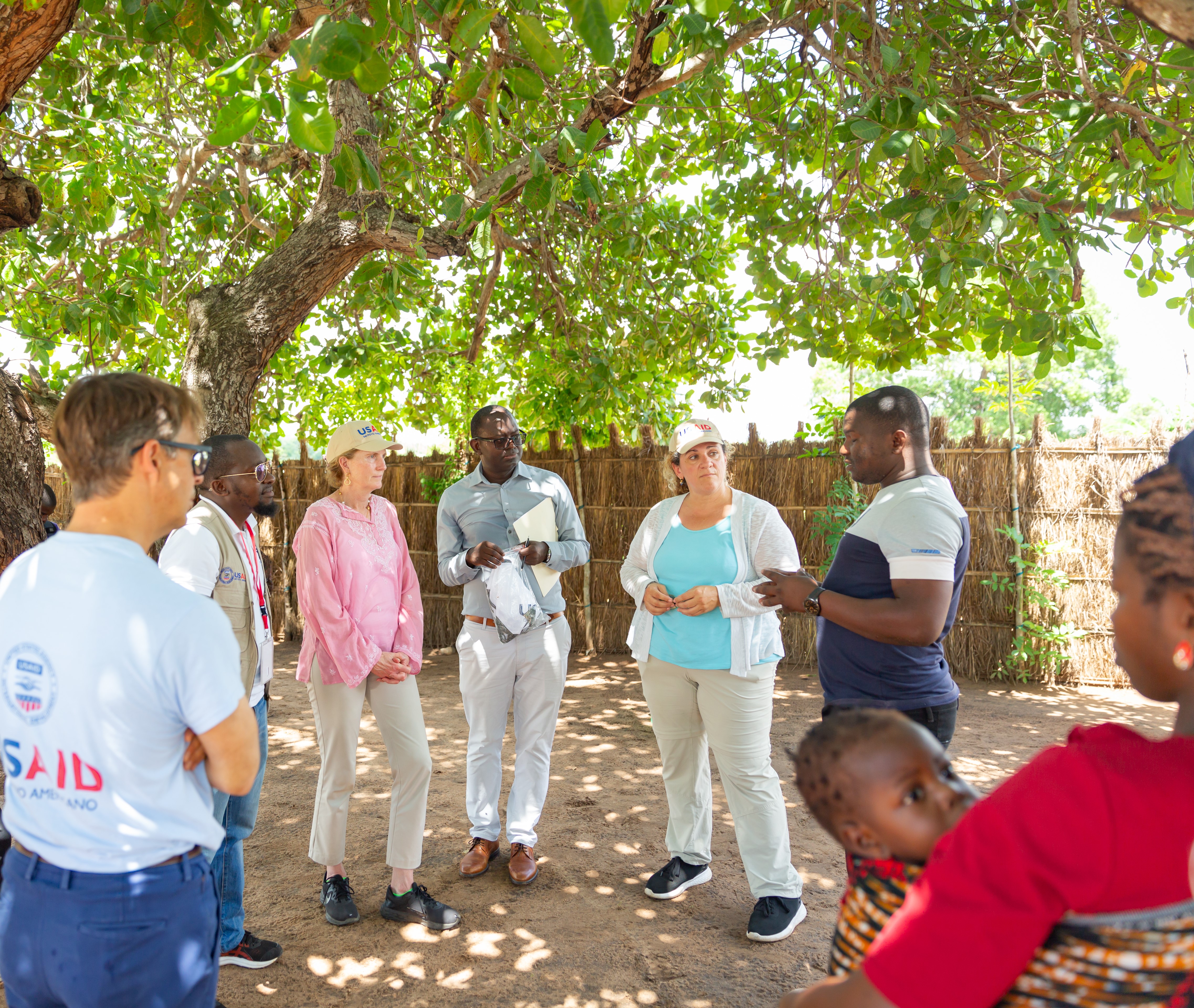
Photo Credit: USAID Small Town Sanitation Activity
Armando Abacar, USAID/Mozambique: Making Sustainable Sanitation Improvements a Reality for Underserved Communities
Armando has worked at USAID since 2016, when he first joined as an energy specialist focused on both energy and water, sanitation, and hygiene. Over time, he stepped into project design, helping craft one of the Mission’s flagship water and sanitation activities—the Small Town Sanitation Activity (STS).
Initially, he was skeptical about working on water, sanitation and hygiene, admitting he “had a few doubts.” But after researching sanitation and behavior change activities implemented in Ethiopia, he felt reassured. He saw that communities there were responding favorably to market-based sanitation investments and showed interest in upgrading to improved latrines. He was also encouraged that USAID/Ethiopia’s programming helped increase community acceptance of improved sanitation. But they faced a challenge in the fact that many simply could not afford the upgrade.
That situation opened his eyes to the untapped possibilities for Mozambique, where adequate sanitation—particularly in small towns—is hindered by institutional and financial capacity.
Armando recalled speaking about sanitation with a community leader who leveled with him. The community leader explained that when he eats, he doesn’t want to share his food with a fly that may have just been in his latrine nor does he want the fly generously sharing its diseases with him either. Armando knew that STS could help. “Poor sanitation is a key source for disease,” he says. “If we’re not addressing sanitation, we’re creating another problem,” he added, such as cholera or typhoid.
In the eight years since joining USAID, Armando has become more certain than ever about how to grow community demand for improved sanitation in Mozambique, and he has particularly enjoyed the process of encouraging the government to prioritize sanitation. Looking forward, what does he want people to know? That “there is a market for sanitation — but we need to work on the financing side for small businesses and consumers alike.”
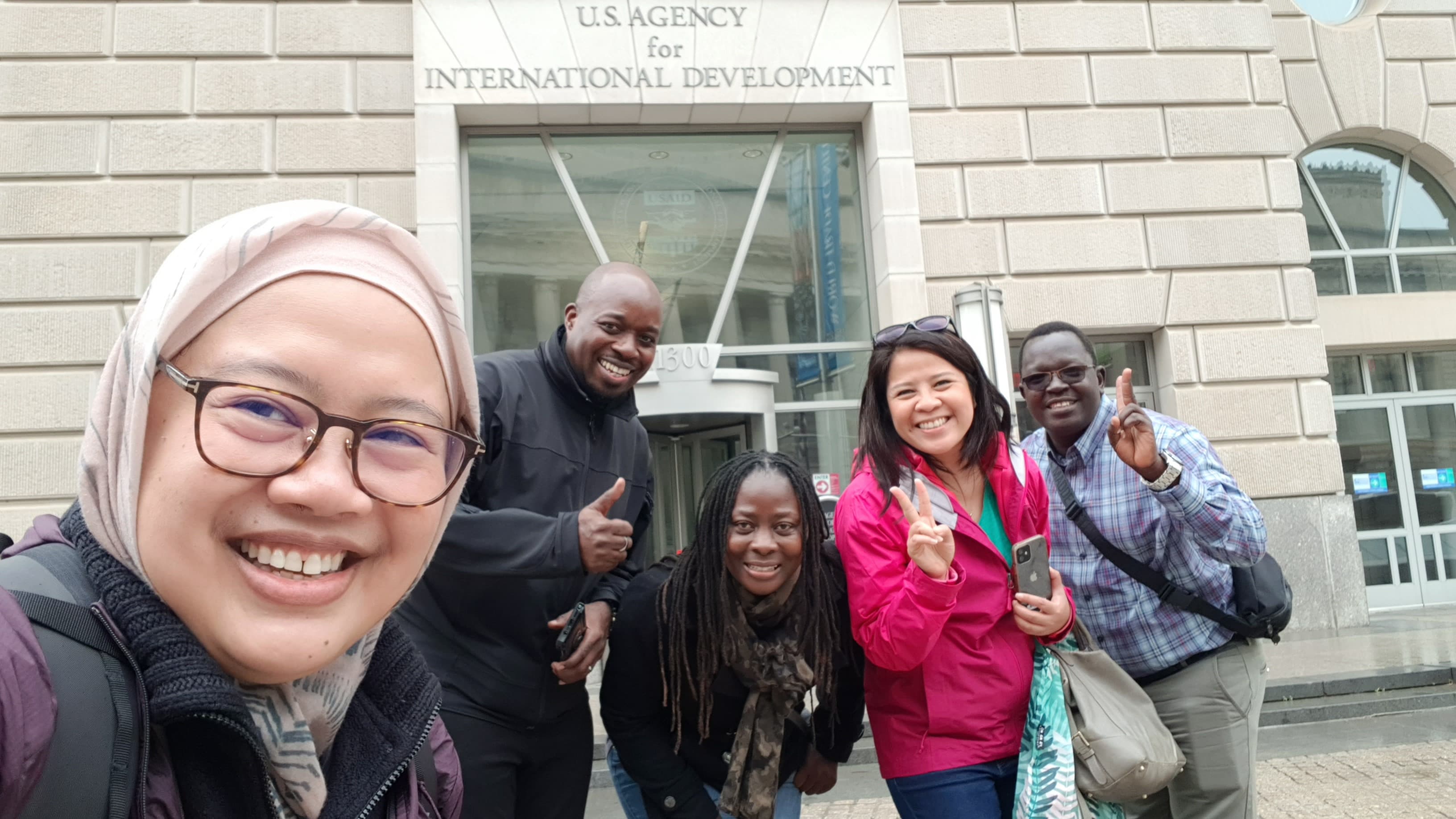
Photo Credit: Endah Shofiani
Endah Shofiani, USAID/Indonesia: Partnering with Civil Society and the Government to Deliver Water and Sanitation Gains
For more than two decades, Endah Shofiani has helped lead USAID/Indonesia’s water and sanitation programming. Involved with USAID’s flagship Urban Resilient Water, Sanitation, and Hygiene (IUWASH) activities since its earliest days, Endah says working in water and sanitation wasn’t considered a glamorous career back when she graduated from university and first launched into the sector. While many of her classmates chose to pursue careers in oil and gas, Endah was drawn to water and sanitation because she recognized the field as both interesting and important—meeting the basic needs of her compatriots.
Endah has enjoyed working with USAID because she gets to work directly with underserved communities and witness the immediate tangible, life-changing impacts. She explains “[when] you deliver water, you can see the smile on people’s faces. [When] you deliver sanitation, you can see the smile on the childrens’ faces. They don’t have to go to the river anymore. They now have a safe facility at home. That’s very satisfying.”
Endah is also motivated by the Government of Indonesia’s consistent involvement in and enthusiasm for USAID’s water and sanitation programming. She says officials regularly tell her that “USAID enables government institutions to make breakthroughs,” because they value the technical assistance that USAID personnel provide.
Endah is especially proud of the accomplishments of IUWASH Tangguh—now in its third iteration—given that the program has already assisted 93 municipalities throughout the country over the past two decades. With its legacy already secure, she hopes IUWASH can continue to help the Government of Indonesia prioritize water and sanitation, attract further private sector engagement and investment, and make progress toward its 2030 Sustainable Development Goals.
Given all she has accomplished to date, what motivates Endah today? She is energized by USAID’s efforts to help low-income people and vulnerable communities secure safe water and sanitation services. Also, she enjoys ensuring that climate resilience plays a greater role in shaping sector programming. By adding climate adaptation and sustainable landscape components to her portfolio, she says, she and her team are able to have greater impact. “We’re now working upstream and downstream” between different sectors, she says, offering a recent collaboration between USAID and the Indonesia Ministry of Forestry and Environment as an example, “and now we can see the linkage.”
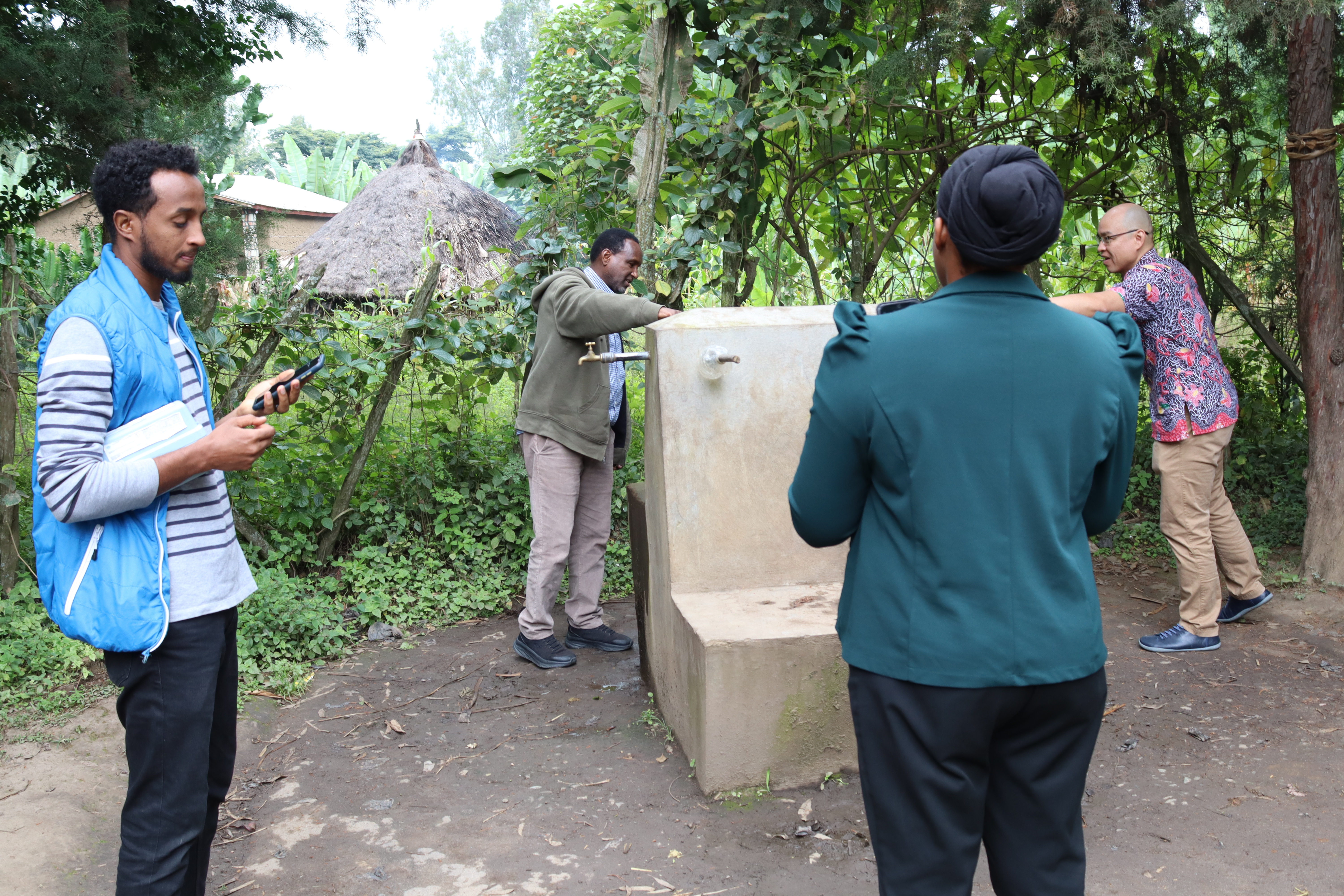
Photo Credit: USAID Climate-Resilient WASH Activity
Faisal Hashi, USAID/Ethiopia: Water as a Tool to Drive Economic and Social Development
Having previously worked on humanitarian response with various United Nations agencies and regional government bodies, Faisal Hashi decided to join USAID three years ago. For him, the reason was relatively straight-forward: “USAID is one of the best organizations to work with because USAID strengthens systems.”
And that is exactly what Faisal is doing through USAID’s Climate-Resilient WASH Activity, which is helping to secure a reliable, safe water supply for households and communities in the arid, drought-prone, and fuel-scarce lowland regions of the country. He shared that the lowlands face numerous challenges, including saline water that is often too salty for human consumption and deep groundwater of up to 600 meters below the surface making drilling costly. Meanwhile, water technicians in rural lowland areas can also be hard to find, he says, because they often move to cities for work. USAID is addressing this shortfall by training women to enter the talent pipeline for the rural water sector, taking on roles as not just technicians, but also as managers and accountants.
“What am I excited for? Providing clean water to these communities!” Faisal proclaims.
To that end, Faisal has been advocating for greater deployment of solar technology that will provide relief from the lowlands’ chronic fuel shortages and assist in pumping water to the surface from deep water points. Given that solar pumps are readily available and easy to install, he believes that the technology is now having its moment, and has the potential to reshape water security in the country for generations to come.
This is one of the many reasons he believes the work his team is doing at USAID is so transformative. Enhancing water access not only improves public health but also shifts gender power dynamics. In addition to reducing the time and distance women spend gathering a day’s water supply, Faisal’s team is ensuring women are represented on local water boards and trained to fill plumber, water manager, and other roles in the sector.
“Every dollar spent on WASH has a $7 ripple effect—less waterborne disease, and less missed school or work,” he says. “So it will definitely contribute to the development of the country.”
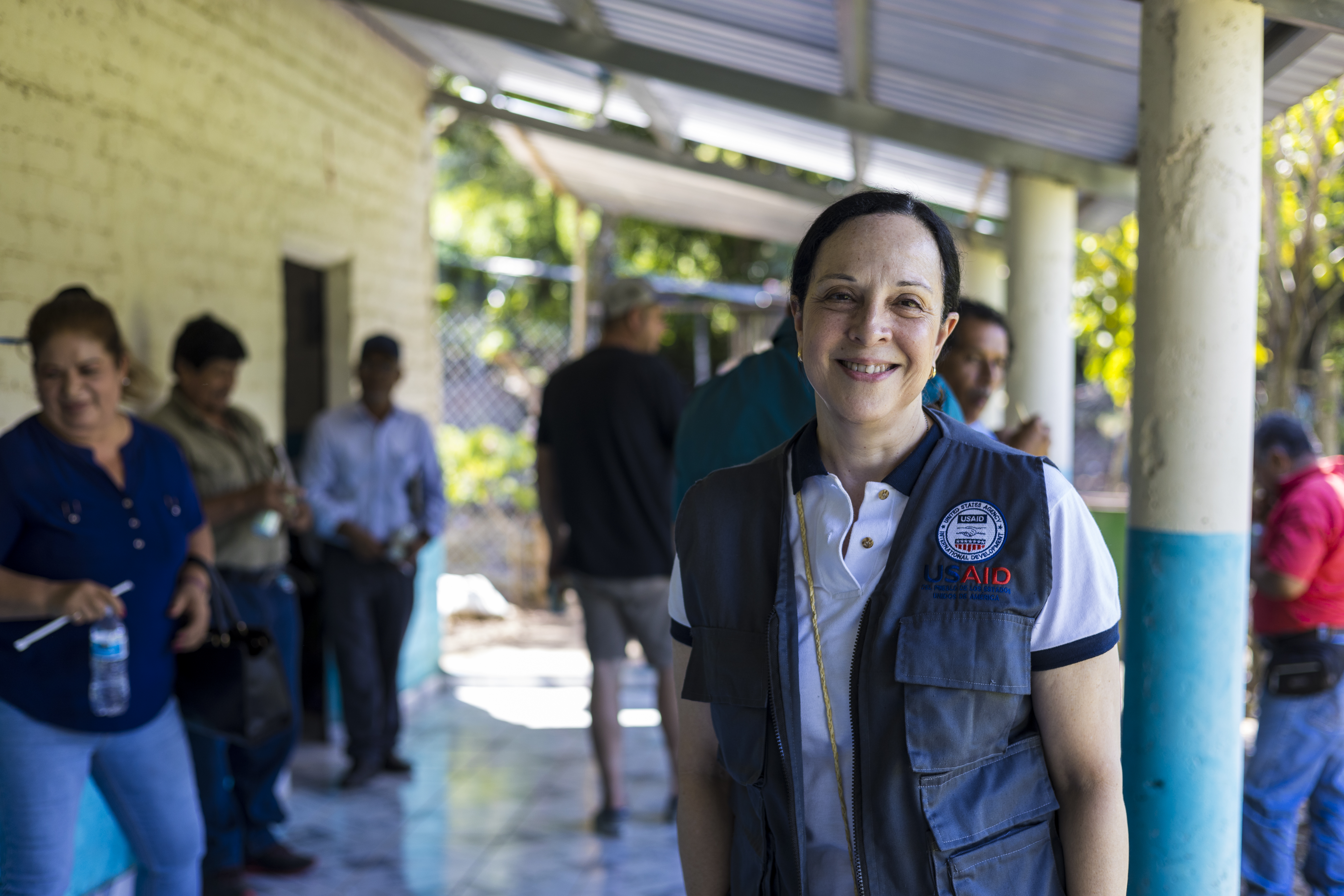
Photo Credit: Azure S.A. de C.V., USAID Mejor Agua Activity
Ana Rosa Selva, USAID/El Salvador: Using Water to Promote Democratic Values
One of the driving forces that initially attracted Ana Rosa Selva to work with USAID seven years ago was the clear linkages between water services, water governance, and democracy. She noticed that when people are not satisfied with water services, they take to the streets to demand service and accountability. It is a unique, realtime referendum on local government.
“In El Salvador,” Ana Rosa explains, “the government has recognized water access as a human right. But there are gaps in how that water is distributed, and whether it is provided equitably… When water isn’t arriving in the community or hasn’t been provided equitably, you see people out in the streets protesting and being very visible to the government, asking for water service. So when we saw that, and how people are organizing around water issues, we saw it as a clear opportunity for [USAID’s] Democracy and Governance Office to engage on water issues.”
Today, Ana Rosa and her colleagues are implementing several recently launched activities to strengthen the performance of the water utility, promote watershed conservation, and improve community-based water services. These activities will involve, among other things, working with nearly 100 community water boards to improve both the quality of and access to water services.
There is good reason to be optimistic that the country is ready for change when it comes to water. In 2021, a national water law was passed “that set the tone for the Government of El Salvador,” Ana Rosa says. “It recognized community-based water systems as providers of water services, which wasn’t enshrined in law before. So I’m very optimistic that we are working in parallel with the Government of El Salvador and civil society on these issues that are important to them.”
“We’re committed,” she concludes. “Through these activities, we are going to improve water access, water quality, and water management across the country. Our projects are designed to strengthen local water practices, promote sustainability, and support communities in managing their water systems. And these are not USAID systems—we want to empower Salvadorans to engage their government to safeguard their water resources.”
***
In El Salvador, Ethiopia, Indonesia and Mozambique, a passion for improving water and sanitation for the betterment of local communities has drawn these experts to USAID—and the communities they serve are all the better for it. These USAID FSN staff are clear-eyed about the challenges ahead, yet optimistic that water can continue to deliver lasting quality-of-life improvements and serve as a unifying force across society.
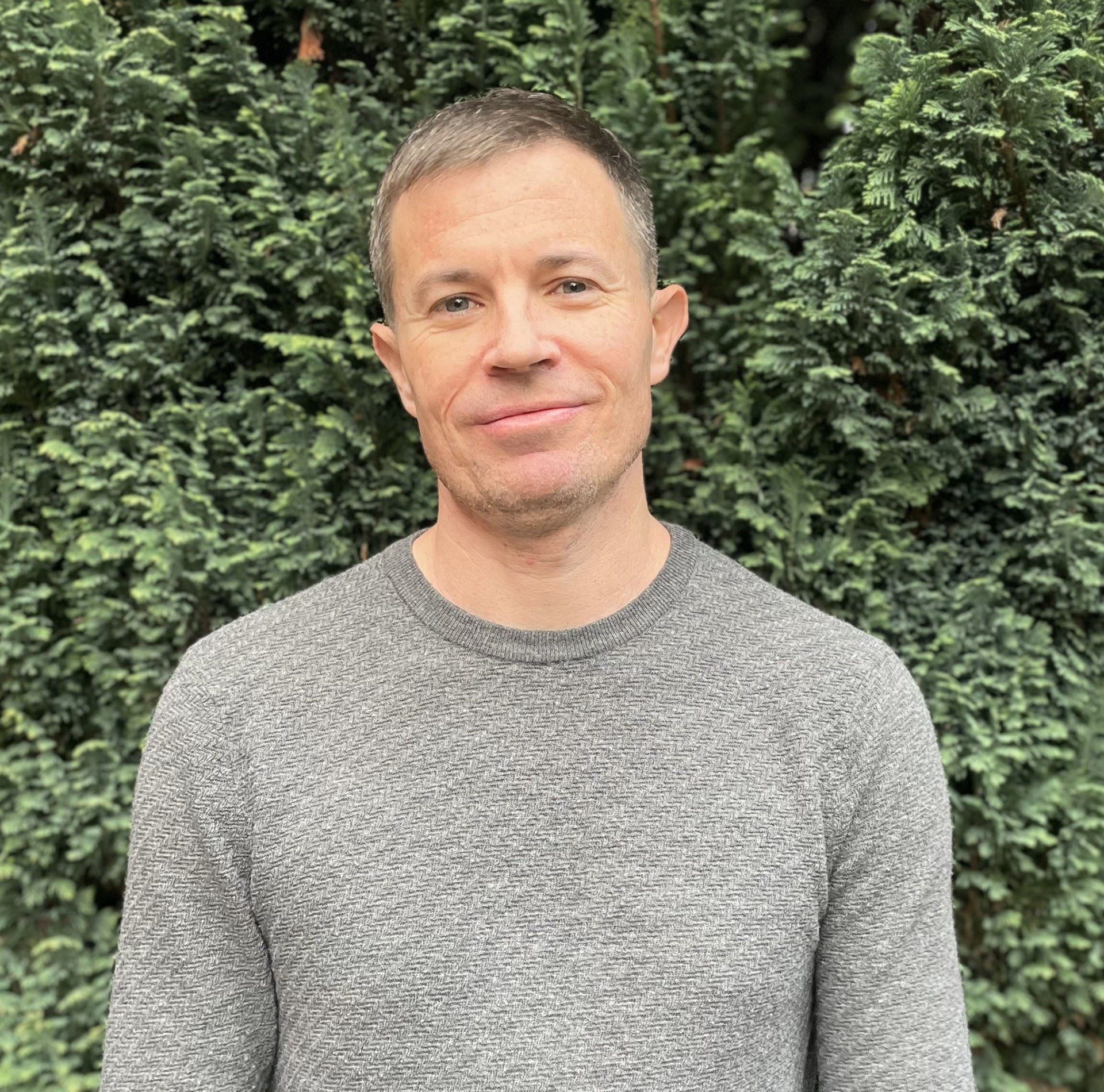
About The Author
Russell Sticklor is a communications specialist, environmental journalist, and podcast producer focused on water security, climate change, and sustainable development. He has worked previously with the International Water Management Institute, USAID, and Project Drawdown, among others.

